Talina Zharikova first met people who had fled fighting in Donbas in a bomb shelter near her flat in the south-central Ukrainian city of Dnipro when the invasion started. For a while, she and her neighbors hosted them in their flats. But there were quickly more people than they could house, so Zharikova decided to ask about renovating an abandoned Soviet hospital opposite their block of flats from her.
Zharikova, her neighbours, other Dnipro residents and those who had fled fighting set about renovating the building, which had been empty for a decade. There are now 240 people living in the various rooms in the shelter, known as Good on Love, and they say there is room for another 100.
The shelter is one of more than 60 set up by Dnipro residents for evacuations. As the first city of relative safety outside many frontline areas, Dnipro has become Ukraine’s aid hub. Thousands who live there, many left jobless by the war, have thrown themselves into volunteering.
Like other volunteers in Dnipro, Zharikova said the financial burden has been immense.
“The city authorities didn’t help, so I fed them all with my own money for the first month. My husband is fighting at the front and I went out and got out what money I had,” said Zharikova, a former hotel manager.
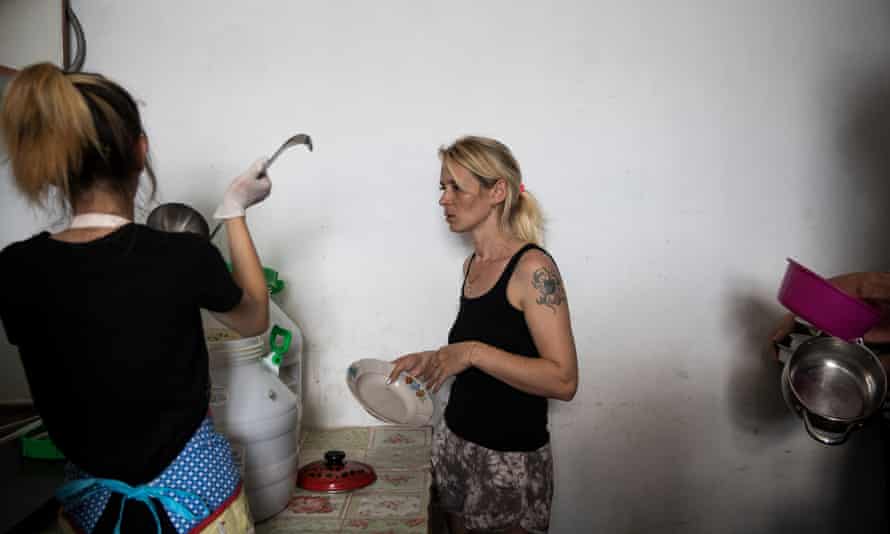
The bills for the shelter average more than £2,000 a month and the volunteers rely on raising money through acquaintances to pay them. One of the lead volunteers is the Ukrainian TV host and comedian Yefym Konstantinovskyi, who has used his Instagram profile to raise money from friends and local businesses to fund a new kitchen and a children’s playground. But for now, the new kitchen sits unused because gas is too expensive, Zharikova explained.
More than £2.15bn has been donated to Ukraine-related humanitarian response efforts since February – more than any other crisis this year. But a recent review by Humanitarian Outcomes, funded by the UK Foreign Office, concluded that about 85% is being held by international aid organizations who are scarcely present in Ukraine and have yet to spend the majority of the money.
The report found that despite “informal” Ukrainian volunteer groups and NGOs providing “virtually all” humanitarian aid, they have received only 0.24% – or £5.3m – from the direct donations to Ukraine.
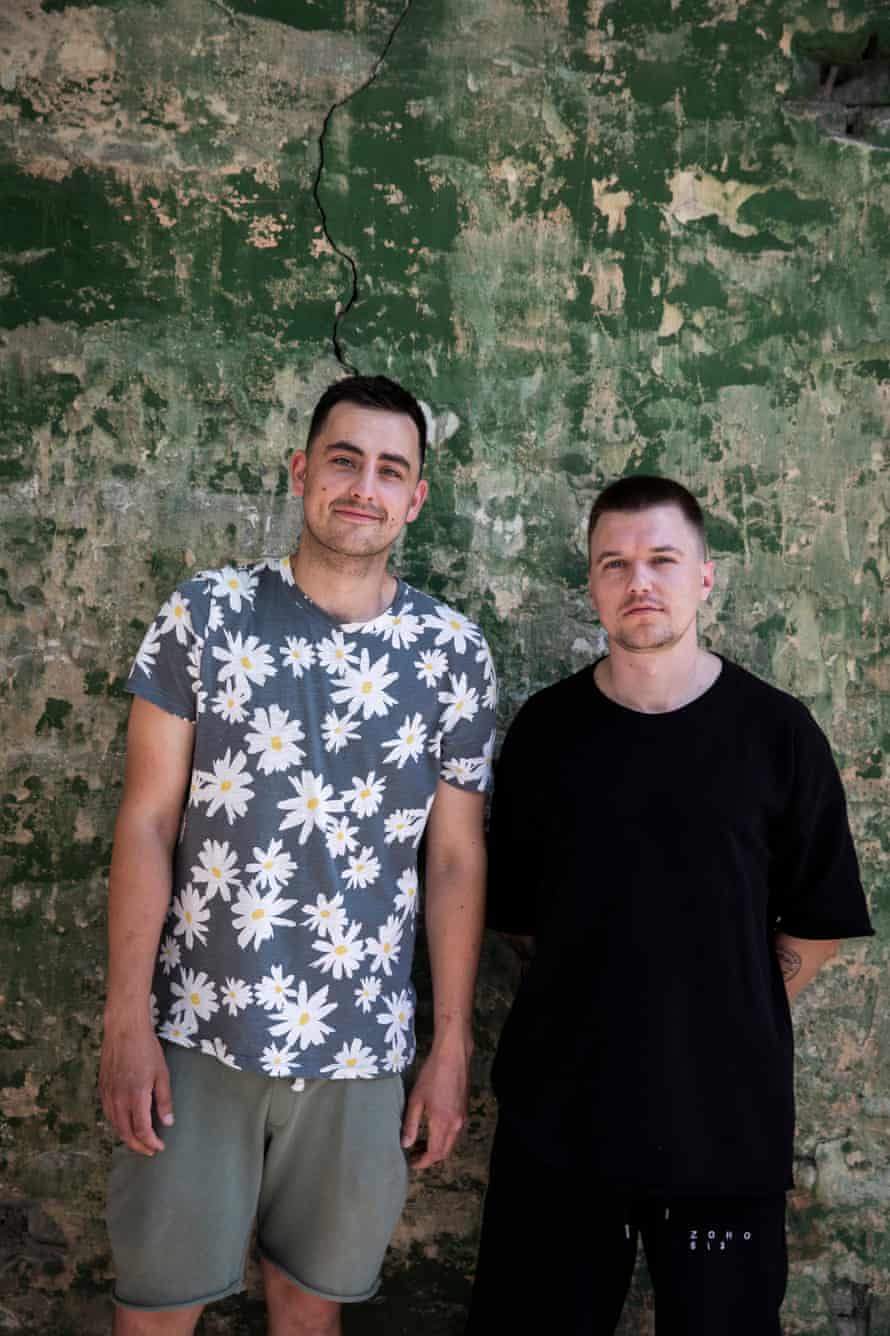
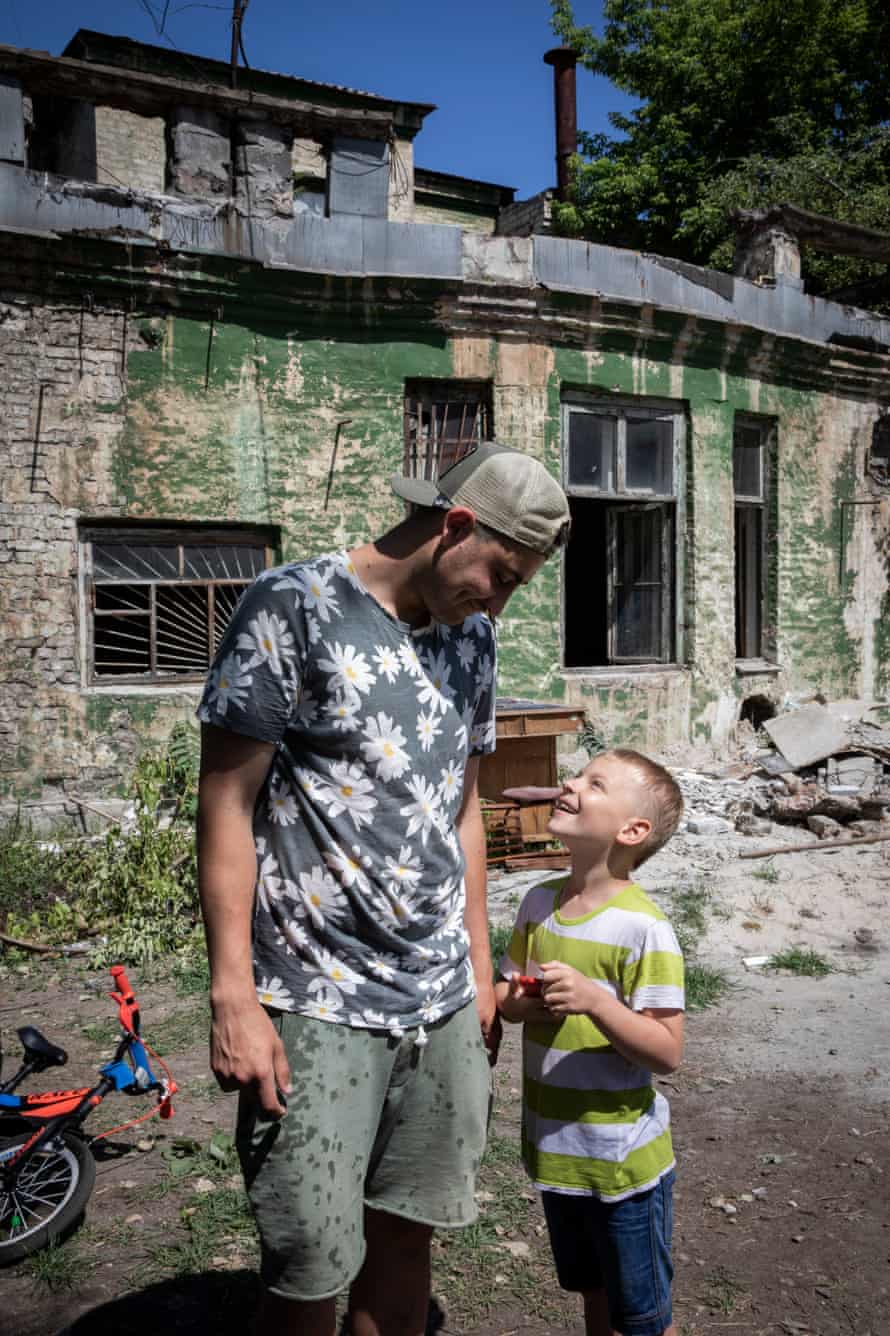
-
Yefym Konstantinovskyi a volunteer at the shelter Good on Love, with Andriy Kit, and right; and a young resident.
For international aid organisations, the invasion of Ukraine has been an anomaly – a place where civil society is active and the state is strongly intact. There are about 2,000 Ukrainian NGOs active in the aid effort, 1,700 of which registered after Russia’s full-scale invasion. There are also thousands of informal volunteer groups, usually acting within their communities, says Humanitarian Outcomes.
According to the report, giving cash to Ukrainian aid initiatives should be an obvious first step to reach those in need. But instead, internal compliance requires recipients to be trained in certain principles and standards, such as one organization that obliges applicants to undergo due diligence processes which can take three months.
The report also found that physical risks to staff and a lack of contingency plans before the invasion has meant that, four months into the war, international organizations are only just beginning to work in Ukraine and their operations remain small-scale. However, they are less than clear about this in promotional materials.
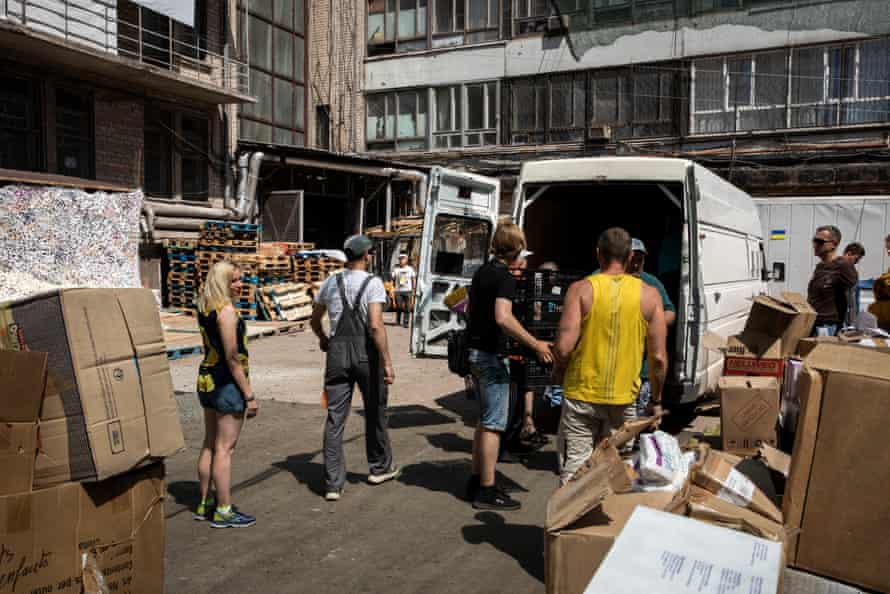
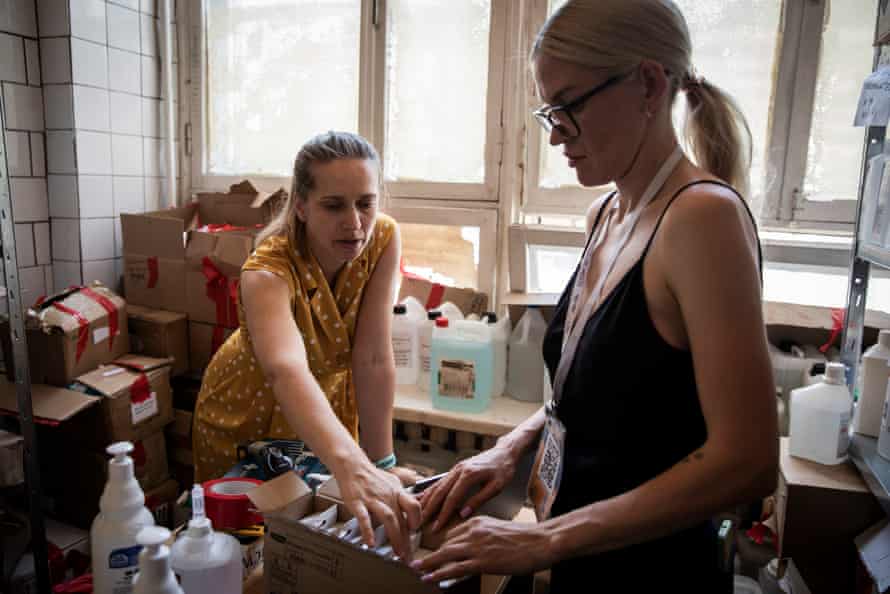
“I was mainly struck by how these first responders were turning to organizations outside the humanitarian sector … because they were quicker,” said Abby Stoddard, founding partner of Humanitarian Outcomes and one of the report’s authors. . “Humanitarian organizations are supposed to be in the business of rapid response.”
Ukrainian volunteers with almost no protection and training have taken on dangerous frontline work. The Pentecostal church in Dnipro, which says that about 12,000 people have stayed in their prayer house-turned-shelter since March, are one of dozens of groups that travel to frontline areas to evacuate people. At the beginning of the war, it also attempted to go behind enemy lines.
“In the first week, volunteers from our church tried to evacuate people from the occupied territories,” said Volodymyr Rudolf, a devoted churchgoer who first decided to house evacuate. . “But that ‘experiment’ was stopped almost immediately when we lost contact with them. We haven’t heard from them since.”
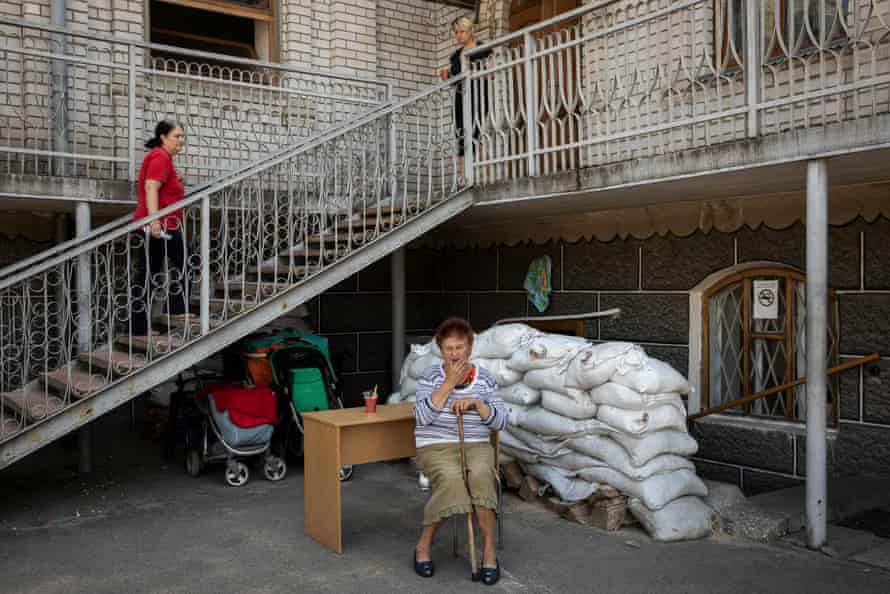
An informal group of 20 neighbors in Sievierodonetsk started giving out food and essential goods to residents in late March, but quickly realized the need to establish a base in Dnipro for supplies. Half the group moved to Dnipro and would travel along the infamous highway for being shelled.
Yevhen Dubovikov, one of the Sievierodonetsk volunteers who moved to Dnipro, said donations dried up in early May and, as the fighting worsened, he lost contact with the other half of the group in Sievierodonetsk.
He now occasionally uses his van to travel to other frontline towns in Donbas, sometimes with the help of World Central Kitchen, an international NGO that acts through local volunteers and is one of the most visible international NGOs in Ukraine.
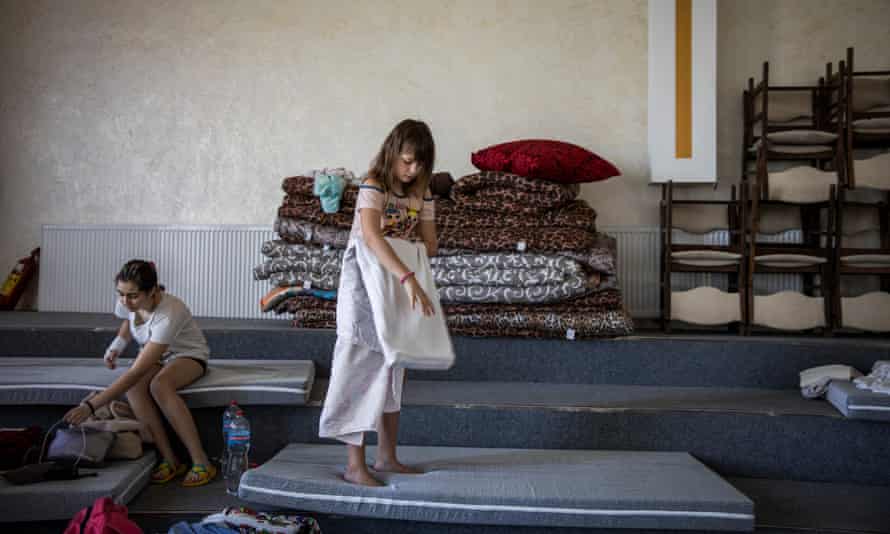
An op-ed by the authors of the Humanitarian Outcomes pointed to the fact that the Red Cross was founded in 1859 on the idea of strengthening the first responders to a crisis – who tend to be neighbors and local organizations – but that they are now failing these groups.
The op-ed also noted the tension between international aid organizations who want to remain neutral in order to cross the frontlines and the fact that many Ukrainian organizations see supporting the military, who are defending their homes, as inseparable from the humanitarian crisis.
Maintaining neutrality will probably be the key area in which international aid organizations can contribute, according to the report’s authors.
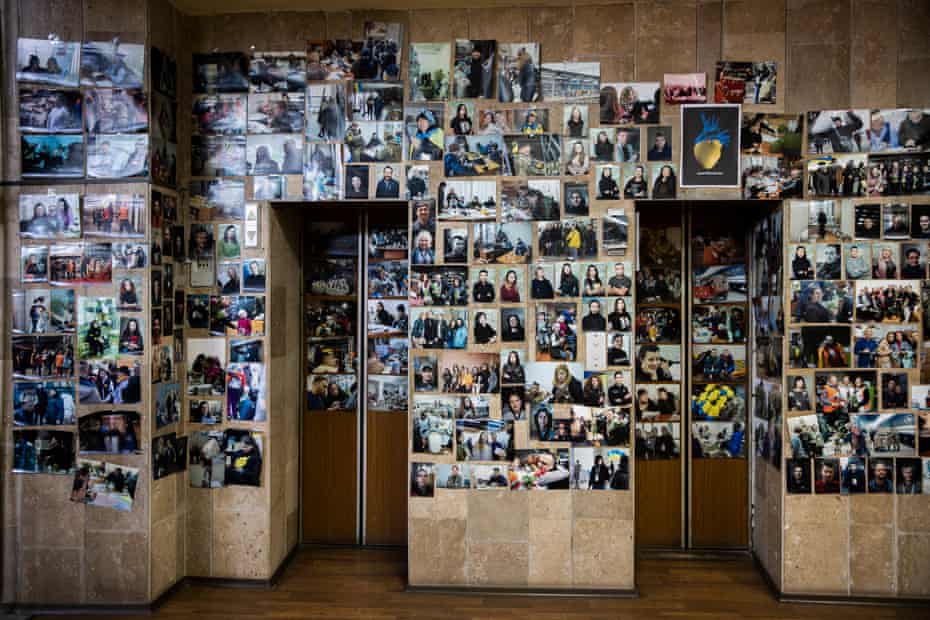
Lyudmila Cherkez, one of the leaders at Dnipro’s busy, multistorey volunteer center which coordinates hundreds of projects across the city, said they “started by supporting the military so that there wouldn’t be any refugees”, but now they support both.
One example is a popular Ukrainian comedy group, known as Live Na Jeepe, who set up a foundation to supply equipment to the military by raising money from their 640,000 YouTube subscribers.
Using funds from viewer donations, they have sourced everything a soldier may need, aside from heavy equipment and arms: from socks, boots and tourniquets to Starlink systems and more than a dozen soon-to-be-banned British diesel cars. They then deliver the goods to the soldiers.
“Sometimes the stuff we get is so new, they ring us up to ask how to use it,” joked Illia Lutsenko, one of the comedy group.
“,”isTracking”:false,”isMainMedia”:false,”source”:”The Guardian”,”sourceDomain”:”theguardian.com”}”>
Another, Ruslan Khabibullin, showed us the reams of Telegram chats with different soldiers and brigades, some of whom had stopped answering their messages. Khabibullin picked up one of the hi-tech night vision attachments for snipers which was intended for a soldier who was killed. They are now waiting to find another suitable, specialized candidate.
For Alex, a friend who allows the group to use the office space of her former cosmetics chain, volunteering has been devastating at times. She has taken on the role of processing requests from the soldiers, which she said can be up to 300 at a time.
“I’ve stopped talking to [the soldiers] over the phone after one of them that we got equipment for died,” said Alex. “I just found it too much.”
www.theguardian.com
George is Digismak’s reported cum editor with 13 years of experience in Journalism